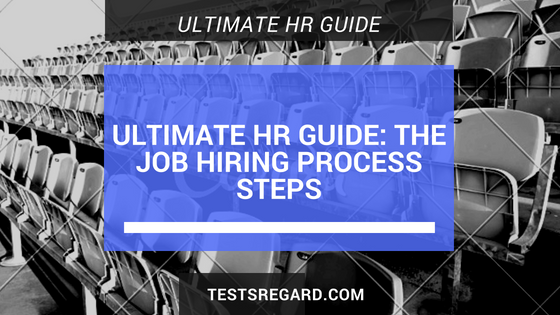How To Pass Verbal Reasoning Aptitude Test
So you’re a student seeking scholarship or a graduate seeking employment and you find yourself asking ‘how do i pass verbal aptitude tests?’. You’re in the right place.
What Is Verbal Reasoning Aptitude Test
Verbal reasoning is the ability to comprehend and reason using concepts expressed through words.
Verbal reasoning questions: is a major section of jobs aptitude tests set by interviewers and examiners. The aim of this test is to find out how skillful you are at understanding and comprehension.
Verbal reasoning aptitude tests have become an invaluable tool for recruiters in a wide range of fields. That’s because many roles require employees to comprehend, analyze and draw conclusions from a large number of written materials, regardless of the industry they’re employed in.

What Should I Expect In A Verbal Reasoning Test?
Most of the time, the test takes place either online, at an assessment center or during the interview itself. Usually, you will be presented with a short passage of text and will need to answer a;
True or definitely true (which means the statement is correct as deduced from the information given in the passage),
False or definitely untrue (which means the statement is not true based on the information given in the passage) or
Cannot say or insufficient information (which means you don’t have enough information to decide whether the statement is true or false) response to each statement.
In some cases, you will be given more than one passage. So you have a passage, some questions, another passage, some more questions and so on for the duration of the test.
Important Tips To Pass Verbal Reasoning Aptitude Test
Having gone through the basics of a verbal reasoning test, here are some useful verbal reasoning tips and tricks, approaches and handy advice to help maximize your chances to pass your verbal reasoning aptitude test.
1. Practice As Much As Possible.
The importance of this cannot be overemphasized. Trying as many verbal reasoning tests beforehand, experiencing timed conditions and seeing the solutions afterwards is the most important thing you can do before a test. Naturally, this will boost your confidence, hone your skills and identify areas you need to do more practice, and areas which are strengths. Simultaneously, doing this will help you familiarise yourself with the format and layout of these tests, helping to dispel fears of the unknown.
We have compiled more than enough past verbal reasoning tests with answers for Dragnet for you. You can check here.
2. Choose Your Environment Wisely.
In situations where your exam is unsupervised and you’re to do your test online or from home, it is important that you choose an environment suitable for exam conditions. You . may want to choose an area that is quiet, free of distractions and has a good and stable internet connection. The time of the day might matter too depending on your personal preference.
3. Be Time Conscious.
Bear in mind that you would hardly have enough time to answer all questions. Note the amount of time you have for the test, how many questions you have to answer then calculate how much time you have to spend on each question. If a question is giving you problem, instead of getting bogged down on that question and wasting valuable time, you can skip to the next question as sometimes, tougher questions might come before simpler ones.
4. Read Thoroughly
Ensure you read the passage and understand very well. Re-read the passage to understand what’s being said and what isn’t said before you answer. Do not assume information that isn’t in the passage. There is nowhere in the question for ‘comments and suggestions’ so you won’t get any extra mark for disagreeing with an information in the passage.
5. Don’t Rush
You need to try as much as possible to stay calm during your exam. If you have more time after you’ve answered all your questions, still go through them again. Finishing on time doesn’t get you more marks. Also do not be nervous or tensed as this can hamper your abilities and cause you to make mistakes.
6. Focus on your work
If you’re going to be in an exam room with other candidates, focus on your work. Ignore what the person next to you is doing. He or she may be many questions ahead of you, that shouldn’t pressure you. To add to this, in some cases your question and that of the person next to you might be different. imagine how brutal your failure will be if you write answers for questions that isn’t yours.
7. Practice your verbal reasoning assessment in the same format which you will have to sit your real assessment.
In a case where you are going to have to use a computer, you should do a lot of practice using a computer so you will get used to it. Reading on the screen can take longer than on paper and you have to get used to this before your exam day.
8. Practice, practice, practice
Finally and almost most importantly. Practice aptitude tests as much as possible before your real assessment. The more questions you have seen the more comfortable and confident you will be in the exam and the higher mark you will score. It can be strenuous at first but having a high score in your aptitude tests is as important as a good performance in your interview or producing a good CV so it isn’t time wasted. Practice makes perfect they say.
I have previously written on Surefire hints to passing Numerical Reasoning Tests and Logical Reasoning tests. Make sure you check them out as well.
-
Scholarships Aptitude Tests Past Questions
Verbal Reasoning Questions & Answers for Jobs & Scholarships Aptitude Tests
₦500.00You can now Download the Verbal Reasoning Question and Answers for Jobs and Scholarship Aptitude Tests today without stress. No Internet connection required. 24/7 Access Guaranteed. Concisely and Completely Compiled.
By…
Add to cartQuick View










Comments (19)
[…] verbal reasoning tests ask candidates to say if a statement following on from a short passage is true, false, or […]
[…] have previously written on secrets to passing Verbal Reasoning Tests and Logical Reasoning tests. Make sure you check them out as […]
[…] you are but how prepared you are. The questions are more of general questions in areas relating to verbal reasoning, quantitative reasoning and abstract reasoning. At times, you might get some questions relating to […]
[…] have previously written an article on all you need to know about verbal reasoning tests, numerical reasoning tests, and logical reasoning tests. Do well to check them […]
[…] job candidates in the sections of General and Logical Critical reasoning, Numerical reasoning, Verbal reasoning, and sometimes Abstract […]
[…] Verbal Reasoning tests assess candidates’ understanding and comprehension skills. It’s a 12-15 minutes test in which candidates will be given a passage and will be required to answer ‘true’, ‘false’ or ‘cannot say’ answer to questions asked based on the passage. Check this to know more about How To Pass Verbal Reasoning Tests Easily […]
[…] into the final score, which is on a 200-to-800 point scale. I have previously written an article on how to pass verbal reasoning tests, there’s also an article on 8 important tips on how to ace numerical reasoning tests. You […]
[…] Verbal Reasoning: This contains questions on word reasoning, word meaning, word analogy, and comprehension. Read more about how to pass Verbal reasoning aptitude tests. […]
[…] How To Pass Verbal Reasoning Aptitude Test […]
[…] Verbal Reasoning/reading comprehension […]
[…] An aptitude test is a competency-based testing method in which questions relating to numerical, verbal and logical reasoning tests. Aptitude tests are specifically designed to test a candidate’s […]
[…] How To Pass Verbal Reasoning Aptitude Test […]
[…] Verbal Reasoning: This is a psychometric test used to determine an individual’s ability to make use of the English language and apply it to written rules. For more tips, read how to pass verbal reasoning test […]
[…] Verbal reasoning/ Reading comprehension: This is a psychometric test used to determine an individual’s ability to make use of the English language and apply it to written rules. For more tips, read how to pass verbal reasoning test […]
[…] 2.Verbal Reasoning Test: The NNPC/ Chevron verbal test is used to measure the ability to quickly get relevant information from what is written down. It determines how a candidate will perform if given complex written information such as reports, correspondence, and research information. It is also a test that determines how a candidate is good at understanding hidden inferences. For more tips, read how to pass verbal reasoning test […]
[…] How To Pass Verbal Reasoning Aptitude Test […]
[…] comprehension, Spatial/Abstract reasoning categories. I have previously written an article on how to pass verbal reasoning tests, there’s also an article on 8 important tips on how to ace numerical reasoning tests. You […]
[…] 1. Verbal Reasoning: Verbal tests are set to judge an individual’s ability to read and understand data that is written down. For more tips, read how to pass verbal reasoning test […]
[…] VERBAL REASONING: The verbal aptitude test is a commonly used psychometric test that is used to rate an individual’s ability to use the English language. Verbal aptitude test helps shed light on a candidate’s suitability in respect to producing clearly written organizational reports and documents. Read more on how to pass verbal reasoning tests. […]